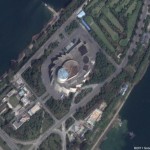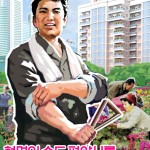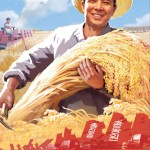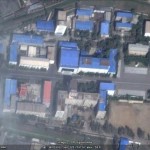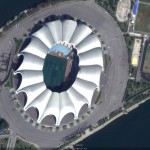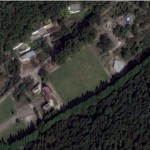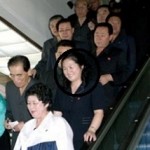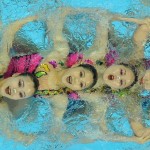UPDATE 6 (2011-11-18): An Australian Women’s team is unhappy with the way the DPRK doping scandal has erupted. Accoridng to the Herald Sun:
A doping storm surrounding the North Korea women’s soccer team has given the Matildas a glimmer of hope they will be able to compete at the London Olympic Games.
The Matildas failed to qualify for next year’s Games after finishing third in the Asian qualifying tournament in September behind Japan and North Korea.
But North Korea was contentiously allowed to contest the play-offs despite being banned by soccer’s ruling body FIFA following a doping scandal involving five players and a team doctor only three months earlier.
The furore erupted in the wake of this year’s World Cup in June and July when the five players tested positive to steroids, earning bans of up to 18 months.
The team doctor was barred for six years and the team was thrown out by FIFA until the 2015 World Cup.
But a FIFA disciplinary committee’s decision to penalise the Koreans in only the World Cup competition meant they were able to remain in Olympic contention.
The Matildas are furious at the decision, especially since no drug tests were taken at the Olympic qualifying tournament in China, where they endured a 1-0 loss to North Korea.
The Australian Olympic Committee has now asked the International Olympic Committee and the World Anti-Doping Authority to clarify North Korea’s Olympic eligibility.
Ultimately, it is understood the IOC will bow to FIFA rulings because FIFA runs the Olympic tournament.
Football Federation Australia national teams chief John Boultbee said FFA had also asked WADA to appeal FIFA’s decision.
But the FFA is also yet to make any inroads.
“We think it’s strange that a team is banned for 2015 and not 2012 so we have raised the issue with WADA, the IOC and FIFA but so far to no avail,” Boultbee told AAP.
“We recognise there’s an element of self interest from our point of view because we were third in the qualification tournament but also we are not happy that what FIFA has found to be systematic doping, has not been dealt with in the most effective way.”
It’s believed Matildas players were initially instructed not to comment on the issue but they’ve opted to speak publicly because of their frustration with the situation.
Matildas captain Melissa Barbieri stressed the women’s side did not want to make excuses for their failed campaign but simply could not fathom why no drug testing was done at the qualifying tournament.
“It’s surprising to say the least, especially when a team has been caught with drugs in their system for the World Cup a month beforehand and to have no drug testing,” Barbieri said.
“They (North Korea) played better than us and we lost the game.
“But it plays on your mind – do you really believe that they didn’t have any drugs in their system when they were playing us as well? Who knows?”
While the five North Korean players banned at the World Cup did not take part in the Olympic qualification and cannot compete in London, veteran Matildas defender Thea Slatyer said she was concerned a host of new players had been brought into the squad but not tested.
Slatyer, who would have played her last international tournament in London, said the players had been left disheartened.
“We’re a very fair country. We’ve always played fair and played by the rules,” Slatyer said.
“… It does make you really upset to know that a team that has conducted this behaviour is kind of allowed to get away with not being tested.”
FIFA told AAP in a statement the Asian Olympic qualifying tournament had not been considered a priority for doping control.
“As due to logistical reasons, FIFA cannot conduct at all qualifying games doping controls,” the statement read.
“Therefore, an assessment is done by the FIFA Anti-Doping Unit and it is decided at which matches doping controls will be performed.”
UPDATE 5 (2011-8-25): The DPRK women’s team has been banned from the 2015 Women’s World Cup. According to USA Today:
FIFA banned North Korea from the 2015 Women’s World Cup after five players tested positive for steroids from traditional musk deer gland therapy at the tournament last month.
FIFA on Thursday imposed bans of up to 18 months on all five players, who North Korean officials said were treated with traditional therapy after being struck by lightning at a pre-tournament training camp.
Jong Pok Sim, Hong Myong Hui, Ho Un Byol and Ri Un Hyang were suspended from all soccer-related activity for 18 months, while Song Jong Sun was ineligible for 14 months, FIFA said.
North Korea’s soccer federation was fined $400,000, and team doctor Nam Jong Ae was banned for six years.
The fine “exactly corresponds to the prize money the association would have received for their 13th place in the final ranking of the Women’s World Cup in Germany,” FIFA said.
Defenders Song and Jong failed drugs tests before the World Cup game against Colombia. FIFA then tested the entire North Korean team after its final match.
FIFA’s disciplinary panel also banned Colombia backup goalkeeper Yineth Varon for two years for doping at the tournament.
The doping case was the most serious at a major FIFA tournament in 17 years.
In July, FIFA’s chief medical officer Jiri Dvorak said after extensive testing, “we can really say with far-reaching confidence that these steroids were the result of this so-callled Chinese traditional medicine.”
UPDATE 4 (2011-7-16): Once again, the North Koreans come up with a creative explanation for testing positive in doping tests. According to the Associated Press:
North Korea officials blame traditional medicine using musk deer glands for five of their players testing positive for steroids at the Women’s World Cup in soccer’s biggest doping scandal in nearly two decades.
Their loss to the US was due to being struck by lightning (see below).
UPDATE 3 (2011-7-16): Three more players have tested positive. According to Bloomberg:
Three more North Korean soccer players failed anti-doping tests given to the whole squad after two teammates failed a test earlier this month at the Women’s World Cup.
FIFA didn’t name the players or the substance in a statement today. All North Korean players were tested after Song Jong Sun and Jong Pok Sim were provisionally suspended July 7 before a game against Colombia in Bochum. The two had been tested after the team’s previous matches and the results received yesterday morning.
UPDATE 2 (2011-7-11): A new German language documentary has been released featuring may of the players and their training facilities. See it here.
UPDATE 1 (2011-7-7): Two members of the DPRK Women’s team have been suspended for doping. According to CNN:
World football’s governing body FIFA announced Thursday that two players from the North Korea side have been provisionally suspended from the Women’s World Cup after failing dope tests.
Jong Sun Song and Sim Pok Jong were prevented from playing in the tournament being held in Germany prior to their team’s Group C tie against Colombia in Bochum yesterday.
FIFA said in a statement that adverse “analytical findings” were present in “A” samples collected in two anti-doping tests conducted after the team’s previous matches.
The statement continued: “In accordance with article 58 of the FIFA Anti-Doping Regulations … the whole Korea DPR team was required by FIFA to undergo an anti-doping test after yesterday’s match between Korea DPR and Colombia. The target testing of the entire Korea DPR team was coordinated with WADA [World Anti-Doping Agency].”
North Korea drew 0-0 with Colombia in their third and final game at the event in which they failed to score a goal; previous defeats to Sweden and the USA consigning the team to an early exit.
Colombia finished below North Korea to bottom Group C after also failing to score a goal in their three group games, a result which preceded the announcement from FIFA that a player from their squad was also subject to suspension.
“In total, there have been three adverse analytical findings in connection with the Women’s World Cup. The chairman of the FIFA Disciplinary Committee [also] provisionally suspended the Colombian player Yineth Varon after an out-of-competition doping test conducted in Leverkusen on 25 June 2011.
“Disciplinary proceedings have since been opened and are still pending. FIFA would like to emphasize once again its determination to keep football free of doping.
“It is FIFA’s duty and will to protect players from harm and ensure that footballers can compete on an even playing field. FIFA is a reliable partner of the World Anti-Doping Agency (WADA) in the worldwide collaboration to safeguard the health of athletes and the spirit of fair competition,” the statement said.
Both North Korea and Colombia failed to progress from the group stage to the quarterfinals, the first of which will be played in Leverkusen when England take on France on Saturday.
Funny, this scene must have been cut from the recent DPRK-made television drama about the women’s football team.
The Middlesbrough Women’s team should demand a rematch!
This is one more sign that the North Koreans are just like everyone else—or rather, North Korean athletes respond to incentives in the same way as athletes from other countries. They just can’t afford the kind of staff that is sophisticated enough to beat the doping tests. Unlike some sports purists, I would just assume allow doping in competition.
But despite being such a small country, the North Koreans do seem to draw their fair share of controversy at sporting events. Two North Korean athletes in the 2008 Olympiad were also punished for doping. North Korean gymnasts have been banned from international competition until October 2012 for age falsification. And up until 2008, the North Koreans were the only team ever disqualified from the International Mathematical Olympics.
ORIGINAL POST (2011-6-28): The US team wins 2-0. The DPRK gave the Americans a good game for the first half I am told.
Most interestingly, the DPRK coach blamed the loss on a lightning strike! According to the Los Angeles Times:
North Korea Coach Kim Kwang-Min had an extraordinary explanation for the loss.
“When we stayed in Pyongyang during training, our players were hit by lightning, and more than five of them were hospitalized,” he told the BBC.
“Some stayed in hospital and then came to Germany later than the rest of us. The goalkeeper and four defenders were most affected, and some midfielders as well. The physicians said the players were not capable of participating in the tournament.
“The fact that they played could be called abnormal, the result of very strong will.”
Additional information:
1. In the past, DPRK players have frustrated foreign sponsors by not thanking them for their victories, but rather “you know who”.
2. The DPRK 2011 women’s team was sponsored by Legea (Italy). The 2008 Olympic team and 2007 women’s football team were sponsored by China Hongxing. Yet a recent North Korean television drama about the women’s team (broadcast last week) featured apparel by FILA.
3. Here is the BBC article mentioned above.
